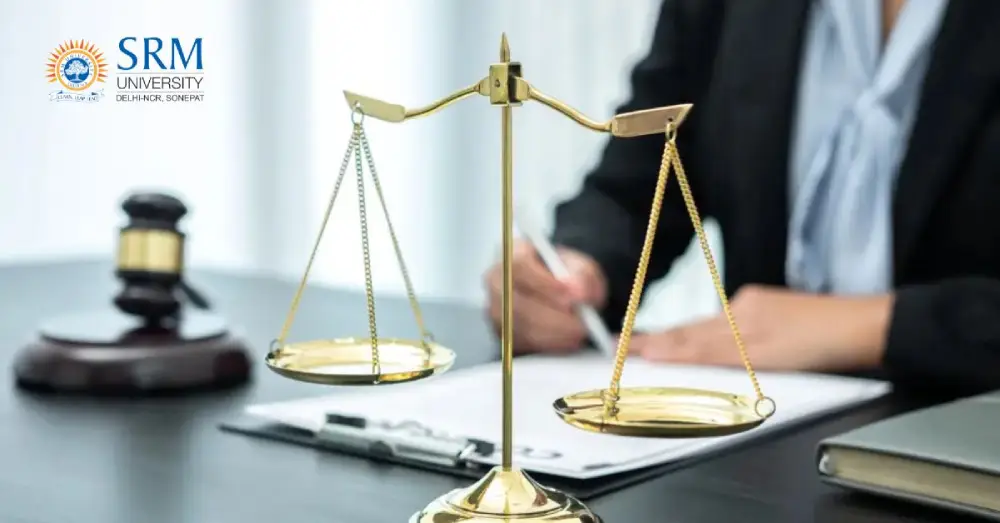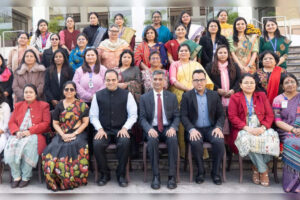
Top LLB Colleges in India 2025-26
Introduction
In India, more than 63% of citizens worry that freedom of speech is at risk during protests. 37% think that the government should restrict such protests from happening.
The arrest of Sonam Wangchuk in September 2025 during the protests in Ladakh shows the delicate balance between public order and individual rights. Wangchuk, a renowned education reformer and climate activist, led a peaceful hunger strike demanding constitutional safeguards under the sixth Schedule for Indigenous communities.
For students at the top LLB colleges in India, his case is a real-world example of how laws protect society while guaranteeing citizens can exercise their basic rights without any form of fear.
Who is Sonam Wangchuk?
Sonam Wangchuk was born in a small village near Leh in 1966. He struggled with school as he spoke only Ladakhi. Later, he moved to Delhi for high school and studied mechanical engineering.
He co-founded SEMCOL, a school that helped students pass exams using hands-on learning. Many students who had failed before were now succeeding. His story inspired the Bollywood character Phunsukh Wangdu in 3 Idiots.
For students in the top LLB colleges in India, the life of Wangchuk shows how one person can change society and still face legal challenges.
Why the Protests Happened
In the year 2019, Ladakh became a union territory. But it had no local legislature. People had no real say in how the region was governed.
Wangchuk and others demanded statehood and constitutional protection under the Sixth Schedule. He led peaceful protests, including a hunger strike.
But on 24 September, some protestors did something objectionable and burned down a political party’s office in Leh. Security forces fired back, killing four people. Wangchuk was arrested under the National Security Act and sent 1600 km away to Jodhpur.
Students at the top LLB colleges in India can see how protests can turn serious and how the law tries to balance safety and freedom.
The Legal Side
The arrest of Wangchuk is all about knowing the important laws:
- The Indian Penal Code (IPC) about unlawful assembly and public mischief
- Criminal Procedure Code (CrPC) about arrests and detention
- Constitution of India especially Article 19 (1)(a) and Article 21 (right to life)
For students in the top LLB colleges in India, studying this case shows when arrests are legal and when they might violate the rights.
Public Order vs. Individual Rights
Keeping public order is important. It protects people from harm. At the same time, citizens have the right to protest and speak freely.
Most protests in India are peaceful. But sometimes, authorities act quickly, out the fear of violence.
Law students in the top LLB colleges in India learn to think about both sides. They study cases where courts decide if the government acted fairly or went too far.
Lessons in Civil Liberties
The arrest of Wangchuk shows why knowing about your rights is important. Many citizens do not know what they can or cannot do during the protests.
For students at the top LLB colleges in India, the case teaches:
- A lawyer must protect the rights of the citizens
- Authorities must follow the law and respect the freedoms of the people
- Civil society plays a crucial role in keeping the governments accountable.
The deaths, arrests and curfews in Ladakh show why civil rights are needed.
The Role of Courts
Courts are important to protect freedom and safety. They check if the government acted properly.
For students in the top LLB colleges in India, the arrest of Wangchuk is a good example of how courts interpret Article 19 and other rights.
Understanding past cases is beneficial for students to handle the situations where public safety conflicts with individual freedoms.
Wangchuk, Climate, and Politics
Wangchuk also fought for the environment. He led climate fasts and the Pashmina March to protect the local herders. His activism mixed politics, rights and sustainability.
Students at the top LLB colleges in India can study this to see how law interacts with social and environmental issues, especially in sensitive regions like Ladakh.
Key Takeaways
The story of Sonam Wangchuk is more than news. It is a guide for knowing about how the law works in real life. His journey shows the challenges of protecting the rights of citizens while maintaining peace in society. Key lessons from his case can help students connect theory with practice.
- The case of Wangchuk shows the balance between public order and civil rights
- The law protects the communities but also protects the individuals
- Lawyers and authorities have ethical responsibilities
- Activism and law often interconnect, especially in border regions.
For students at the top LLB colleges in India, the story of Sonam Wangchuk is a living lesson in democracy, rights and law.
Why Studying Such Cases Matters for Law Students
Real-life cases like the arrest of Wangchuk teach students about practical law. They learn about how the law works in the streets, not just in textbooks. Studies show that 65% of LLB graduates say that practical case studies improve their legal understanding significantly.
Students also learn about advocacy, legal drafting and courtroom strategies. They see how lawyers balance the societal needs and protect individual freedoms.
Why SRM University Delhi NCR, Sonepat is a Top Choice for LLB
SRM University Delhi NCR, Sonepat is one of the top LLB colleges in India. The programme combines theory with practical exposure. Students study constitutional law, criminal law, human rights law and legal ethics.
More than 80% of SRMUH LLB students take part in internships, moot courts, and research projects. The hands-on learning helps students to understand civil liberties, public order and judicial procedures in real cases.
Practical Learning at SRM
Students work on cases related to freedom of speech, protest laws and public safety. They analyse real-life examples like the arrest of Sonam Wangchuk. Research shows that 70% of the law students in SRM University Delhi NCR, Sonepat work in law firms, NGOs, and government agencies, focusing on rights and policy.
Workshops, seminars and mock trials teach students about arguing cases ethically. They learn about protecting the rights of citizens while respecting the law.
Combining academic learning with practical skills
SRM University Delhi NCR, Sonepat stands out as it combines academic learning with practical skills. Students study the law, courts and societal issues together.
The university prepares graduates for different careers in litigation, public policy, human rights advocacy, and corporate law. The strong focus on SRM University Delhi NCR, Sonepat on ethics, rights and real-life legal cases makes it one of the top LLB colleges in India.
FAQs
Q.1 What can students learn from Sonam Wangchuk’s arrest?
Students can learn about balancing public order with individual rights and the importance of civil liberties.
Q.2 Why is studying civil liberties important for LLB students?
Civil liberties are important for students to handle real-world cases where rights and public safety conflict.
Q.3 Which laws are relevant in such cases?
Articles 19 and 21 of the Constitution, IPC sections on public order and the Procedure Code rules are the laws that are used in such cases.
Q.4 Why choose SRM University Delhi NCR, Sonepat for LLB?
SRM University Delhi NCR, Sonepat, comes up with a strong combination of theory, practical exposure, internships, and real-life case analysis.
Source link



